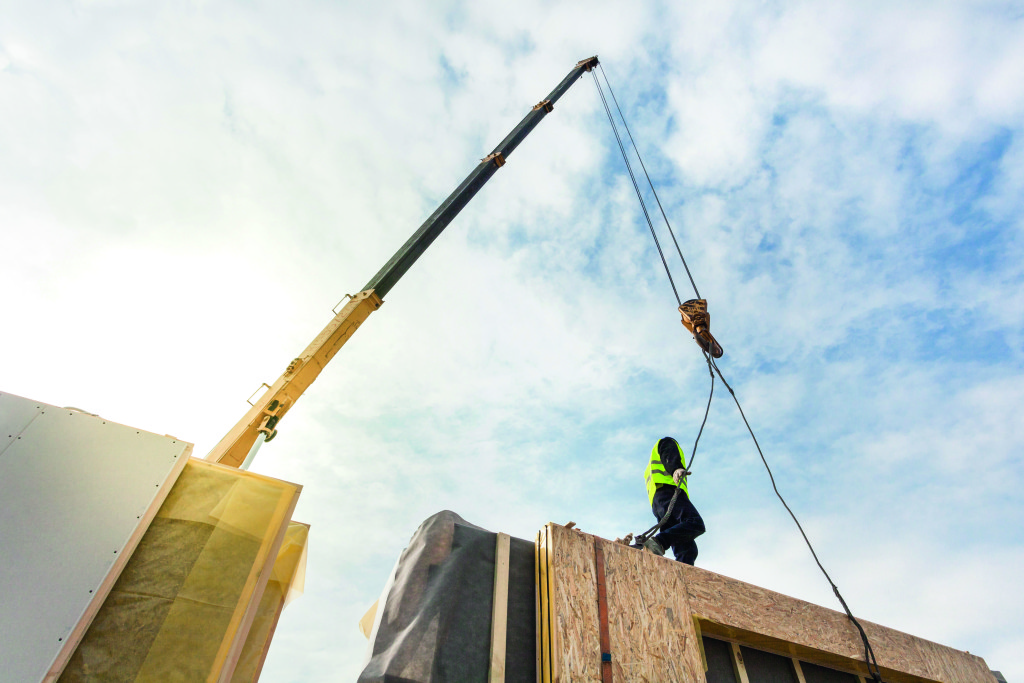Advertorial - What if you are building a house and run out of money?

Running out of money during a house-building project can be a daunting and challenging situation. While planning, budgeting, and financial diligence are essential, unforeseen circumstances can still arise, causing financial shortfalls. In the UK, the construction industry has experienced its share of such situations. Let's delve into what you can do if you're building a house and run out of money, along with relevant statistics from the UK.
Understanding the Situation:
Running out of money during a house-building project can stem from various factors, including underestimating costs, encountering unexpected expenses, fluctuations in material prices, regulatory changes, or delays in construction. These challenges can lead to delays, unfinished projects, or the need to secure additional funding to complete the build.
Evaluate the Budget:
The first step is to thoroughly evaluate your budget and determine the extent of the shortfall. Analyze your initial estimates and compare them to the actual expenses incurred. Identify areas where costs exceeded expectations and assess whether there are any non-essential features or design elements that can be postponed or scaled back to save money.
Seek Additional Financing:
Personal Savings: If you have personal savings, this might be the first avenue to explore. However, tapping into personal savings should be a careful decision, considering your overall financial stability.
Loan Options: Consider applying for a construction loan, which is designed to cover building expenses. Perhaps you need some kind of emergency loan to cover initial expenses, such as leaks, flooding or basic wages (Source: Dollar Hand). Alternatively, if your house is partially constructed, you might be eligible for a completion mortgage that covers the remaining work.
Line of Credit: If you own another property or have significant equity in your existing home, you could consider a home equity loan or line of credit to fund the construction.
Refinancing: If you own the land outright, refinancing your existing mortgage might provide additional funds for construction.
Borrowing from Family or Friends: While this can be a sensitive option, borrowing from close relations might be a solution to bridge the gap.
Prioritize and Adjust:
Review your plans and prioritize essential aspects of the construction. Consider adjusting the design or features temporarily and focus on completing the core structure and utilities. You can always add finishing touches later when finances improve.
Negotiate with Contractors and Suppliers:
Engage in open discussions with your contractors and suppliers. They might be willing to negotiate terms or offer more flexible payment schedules to accommodate the financial situation.
Statistics from the UK:
While there's no single source providing specific statistics on the exact percentage of house-building projects that run out of money in the UK, several factors indicate the financial challenges faced by homeowners and builders:
Cost Overruns: According to a study by the Royal Institute of Chartered Surveyors (RICS), approximately 80% of construction projects worldwide suffer from cost overruns. While this statistic is not specific to house-building, it highlights the prevalence of budgeting challenges in the industry.
Rising Material Costs: In recent years, the UK construction industry has faced significant material price increases, impacting project budgets. Trending Impact reported that 93% of builders faced increased costs due to materials, with 85% of them experiencing delays as a result.
Planning and Regulatory Challenges: The planning and regulatory process can also contribute to delays and budget overruns. The HomeOwners Alliance found that 37% of self-builders in the UK faced challenges with planning permission, which can lead to unexpected delays and additional costs.
Financial Planning: A report by BuildStore Financial Services revealed that 60% of self-builders underestimate the total cost of their projects. This emphasizes the importance of thorough financial planning and a contingency fund.
Running out of money during a house-building project can be a stressful situation, but there are various options to consider. Evaluating your budget, seeking additional financing, adjusting plans, negotiating with contractors, and seeking professional advice are essential steps to navigate this challenge. While statistics in the UK indicate prevalent cost overruns and material price increases in the construction industry, careful planning, contingency funds, and flexibility can help mitigate the risks associated with building a house.







